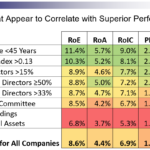By Nicholas Benes
(also published in the Harvard Law School Forum on Corporate Governance)
The Birth of the Corporation: Public Interest Organizations
The evolution of the modern corporation is the fascinating story of a series of self-serving legal and societal mutations over hundreds of years, which have morphed the original concept and endowed corporations with freedom of activity, rights, and limitations on liability that would shock their original “inventors”.
As we all know, for many years most corporations were established by way of an exceptional “charter” by a sovereign, granted only in specific cases where: (a) large amounts of capital were needed (b) to conduct investments and activities that served public or national interests and had good profit potential, but (c) where the risks were so large that few parties would invest if their risk were not shared with many others and/or limited to the amount of money they invested.
In the 1600s and 1700s, the activities that sovereign nations felt met those requirements were the exploration of foreign lands on the other side of the globe, the creation and administration of colonies there, and conducting lucrative trade on long (and dangerous) sea routes to and from those colonies. Thus, the most well-known early corporations include organizations such as the British East India Company (the original “too-big-to-fail company), The Dutch East India Company, the Hudson’s Bay Company, and companies to construct the Erie Canal.
As the industrial revolution gathered steam, the need to raise large amounts of capital increased many times over. Driven by this need, the immense benefits of corporate status for raising financing became increasingly obvious and desirable to investors and managers: easy stock transferability vs. rewriting partnership agreements, separation of ownership from control, legal personhood that simplified large transactions such as loans and large investments (a single counterparty to deal with and sue), and the possibility of receiving a charter that conferred “limited liability” on shareholders. All of these made it much easier to raise funds in large amounts than any other form of business organization.





